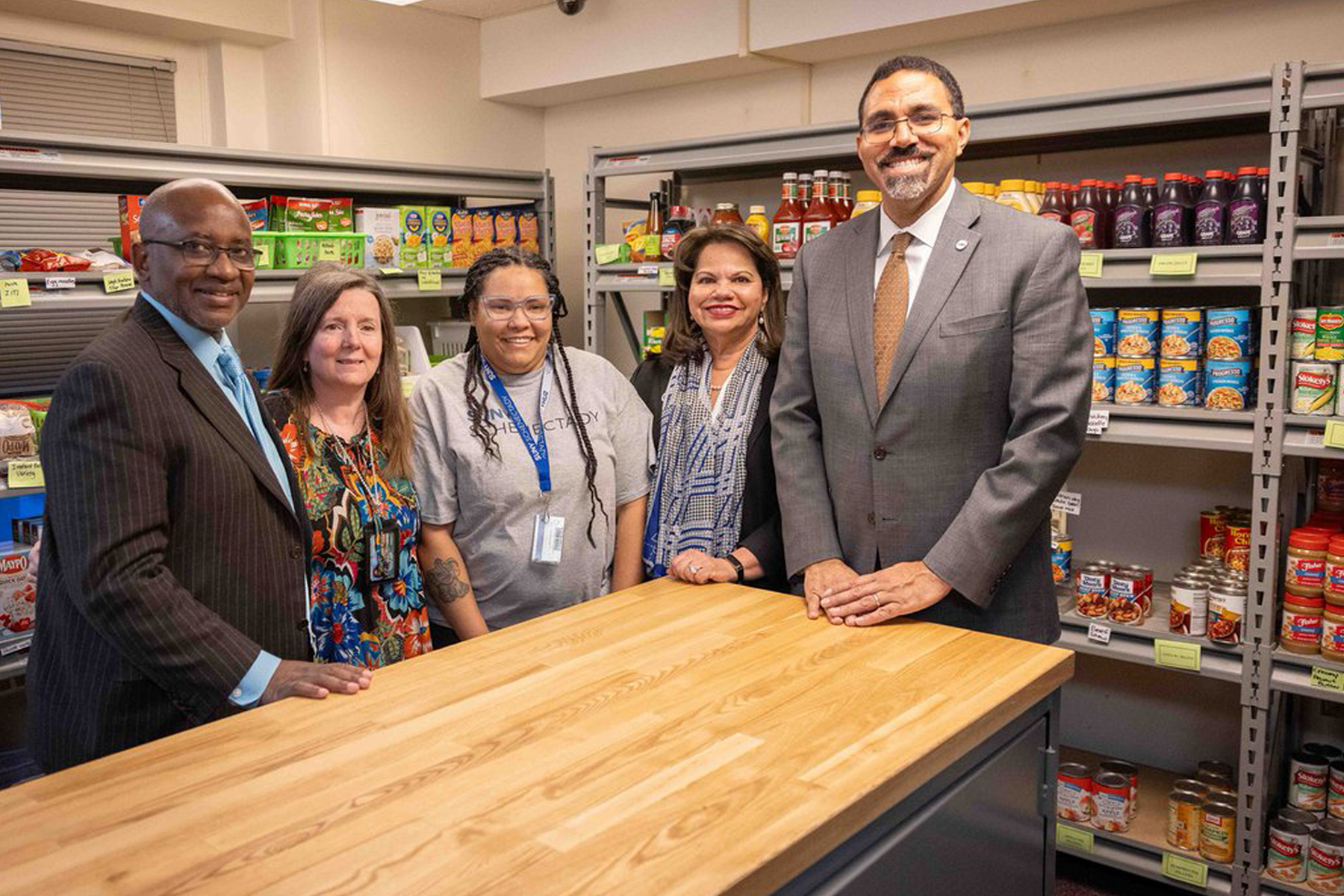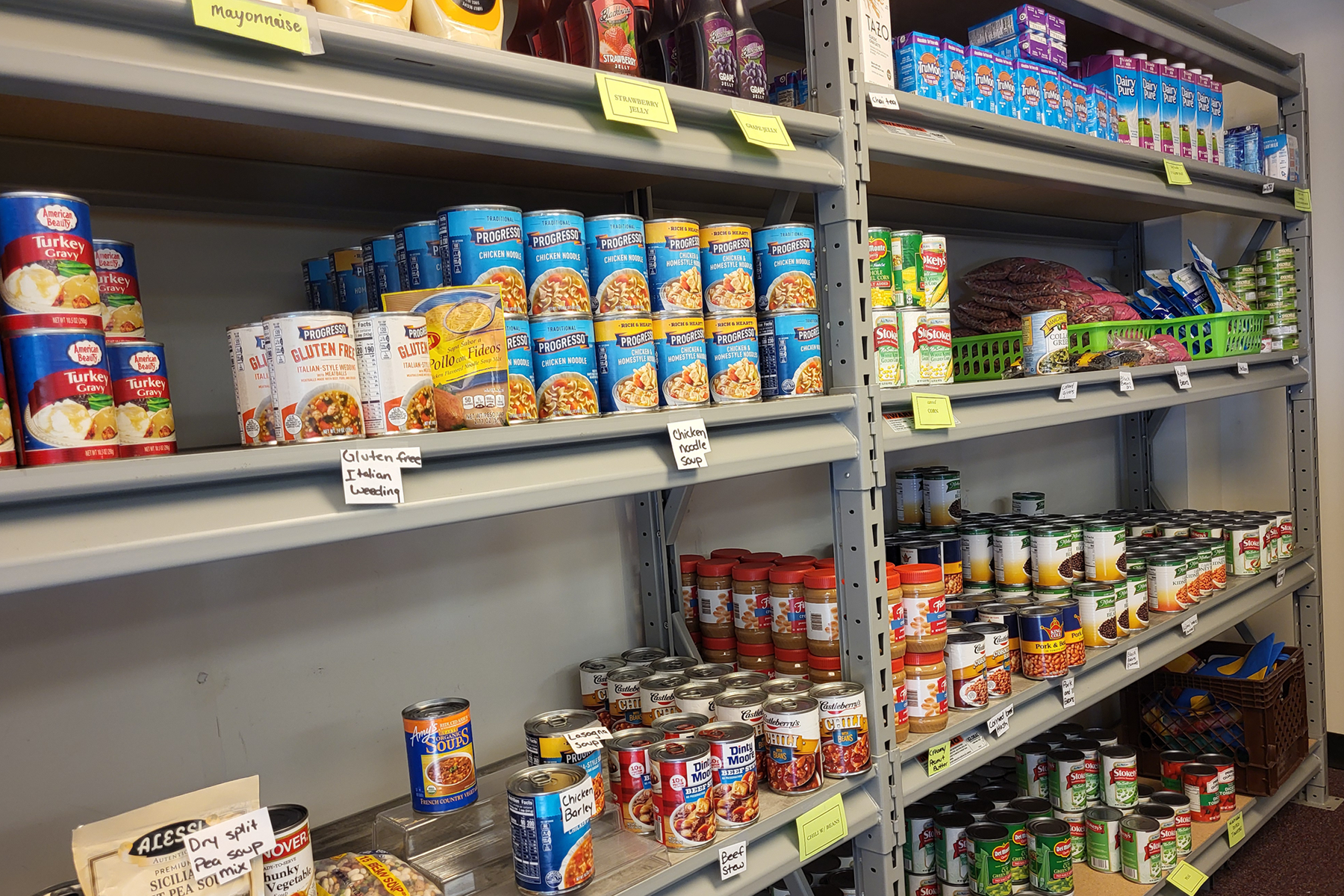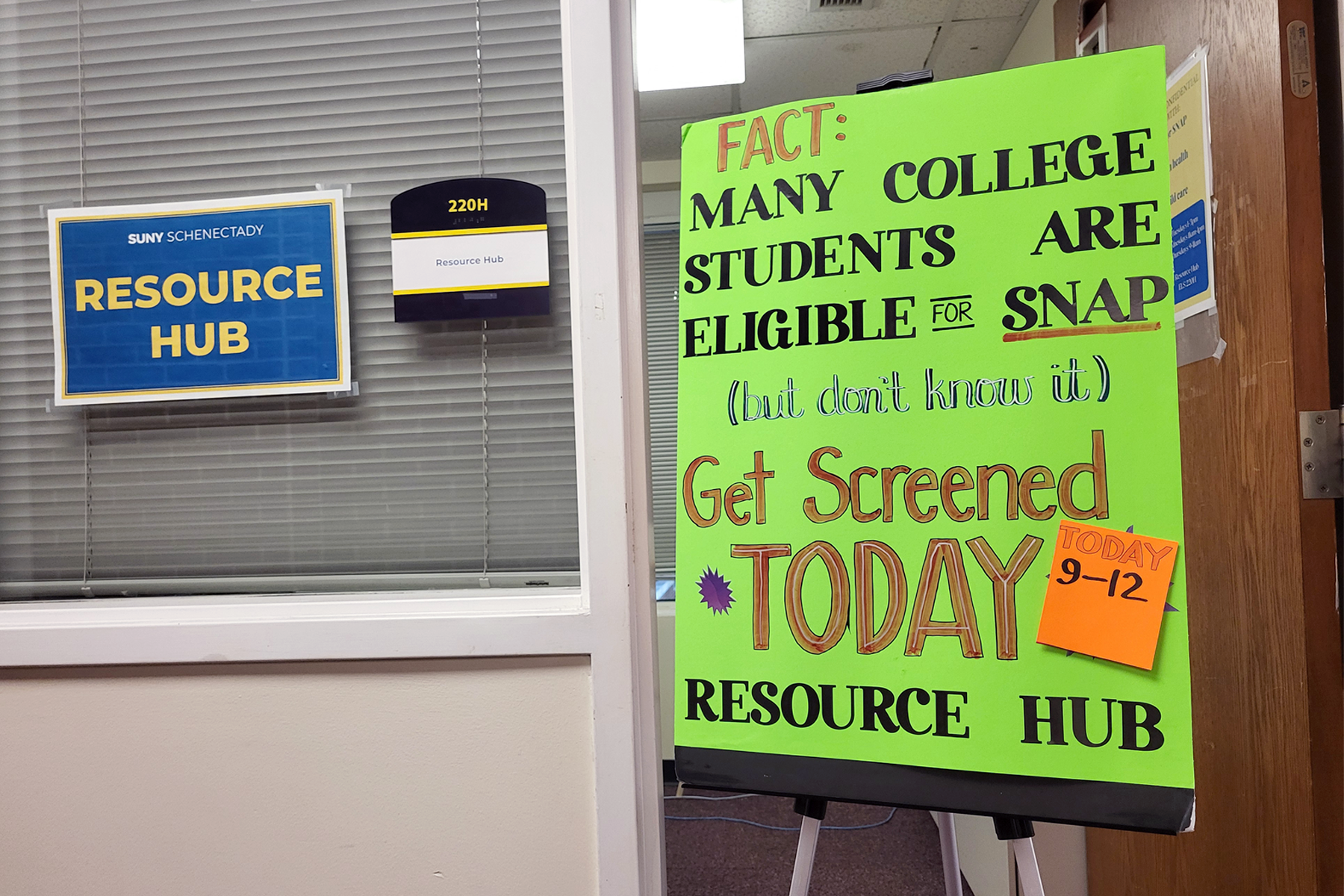Connecting More Students To Supplemental Nutrition Assistance Program (SNAP) Is Focus of New Partnership Between SUNY and Benefits Data Trust

SUNY Chancellor John B. King (far right) with (l. to r.) Dr. Steady Moono, College President; Robyn King, Director of Wellness and Support Services; Latasha Rivera, Student Worker; and Johanna Duncan-Poitier, SUNY Senior Vice Chancellor for Community Colleges and the Education Pipeline
During his recent visit to campus, SUNY Chancellor John B. King, Jr. toured the Food Pantry for a discussion on student food security and highlighted SUNY’s work to improve student success by connecting students to SNAP and other public benefits programs.
Consistent with Governor Kathy Hochul’s 2024 State of the State direction for SUNY to address food insecurity among students, SUNY has called on campus presidents to ensure that beginning in Fall 2024, every eligible student will be identified and receive personalized outreach and application support for the Supplemental Nutrition Assistance Program (SNAP). To support campuses in this work, SUNY and the national non-profit organization Benefits Data Trust (BDT) are working with five SUNY community colleges, including SUNY Schenectady, on personalized outreach efforts connecting eligible students with the Supplemental Nutrition Assistance Program (SNAP) to remove food insecurity as a barrier to students reaching their full academic potential.
BDT and SUNY are utilizing a new BDT toolkit to determine the most effective ways to reach out to students who are potentially eligible and use existing data to connect them to SNAP and other public benefit programs. At SUNY Schenectady, the campus and BDT are developing the most effective outreach language, determining whether students prefer support to be self-service or in-person, and training and coaching staff on connecting eligible students with application resources.

“SUNY is committed to student success, and a student cannot fully focus on their education if they live in a constant state of concern about when their next meal will be,” said SUNY Chancellor King. “Nationally, 23% of undergraduates and 12% of graduate students report having experienced food insecurity, according to the National Center for Education Statistics. Those numbers are unacceptable. Through increased investment and partnerships like this one, SUNY is addressing our students’ basic needs, removing obstacles to attending college and finishing with a degree or certificate.”
The five community colleges participating in the partnership with BDT are:
- Finger Lakes Community College
- Monroe Community College
- SUNY Orange
- SUNY Schenectady County Community College
- SUNY Westchester Community College

SUNY Schenectady has an authorized SNAP retailer on campus, a resource hub where students can meet with a Nutrition Outreach and Education Program Coordinator on campus, and was recently awarded a grant to add refrigerated lockers to the food pantry so that students can pick up food at a time convenient for them.
Income-eligible students at SUNY community colleges that are enrolled in programs that help prepare students directly for a career program, or who work more than 20 hours a week, may be eligible for SNAP benefits, which could mean $135 a month for groceries.
Thanks to Governor Kathy Hochul and the New York State Legislature’s investment in SUNY’s operating budget, SUNY has been able to take steps to address campus food insecurity by allocating $1 million in ongoing, state-supported operating funding to provide financial assistance for campus food pantries.
“It is critical that we do all that we can to eliminate barriers to higher education and this includes easing food insecurity,” said Dr. Steady Moono, President of SUNY Schenectady. “We need to reach out to students to make them aware of the assistance that is out there for them. The partnership between SUNY and BDT is a very powerful step in this direction. We are grateful that SUNY Schenectady students will benefit from this new initiative that will impact them in profound ways so that rather than being concerned about having enough food on the table, they can focus on their studies and the hopes and dreams that they have for the future.”